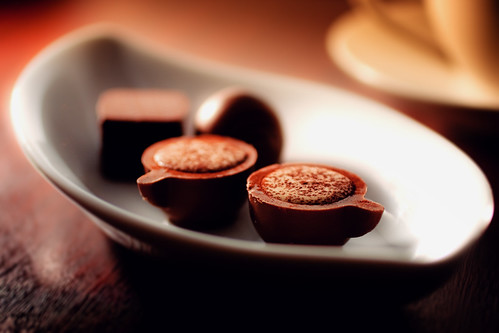It sometimes seems that there is endless chatter in the media and at the water cooler regarding whatever the latest diet or exercise tip is, or what everyone needs to buy or throw out right away in order to protect their health. Information can be confusing, worrying, and downright hypochondria-inducing. There are some tried and true methods tested for countless years that may sound a bit off the wall or just like an old wives’ tale, but many of these tips have stood the test of time. Here are three unexpected health tips that work.

1. Eat more chocolate.
To be precise, you should be eating dark chocolate or cocoa powder. Dark chocolate contains special plant phenols which prevent blood clots, improve circulation, protect against heart disease and stroke, and help lower blood pressure. Dark chocolate is rich in antioxidants. It is also a good source of magnesium, which helps with symptoms of anxiety and menstruation. Chocolate improves the body’s ability to metabolize sugar, a boon for diabetics. Chocolate contains an antioxidant known as flavonal which is key in protecting against cell-damaging free radicals.
Dark chocolate and cocoa powder of at least 60-70% is important because milk and white chocolates do not share the same health benefits. Chocolate is high in sugar and fat of course, so rather than increasing calories, people using chocolate medicinally should cut back in other areas of their diets. Used smartly in conjunction with recommended diet and exercise, around 50g of dark chocolate weekly can be a good part of a heart-healthy lifestyle.
Properties of dark chocolate have been shown to offer limited natural sun protection, act as a mild cough suppressant, boost moods and make people feel more alert, and improve vision through increased blood flow to the retina.
2. Skip the antibacterial soap.
Antibacterial soaps were developed for hospital use, but have since become mass-marketed. It sounds good- keep cold-free with antibacterial soap. But over time, these soaps have caused bacteria to evolve into antibacterial and antibiotic resistant strains. The strongest bacteria remain after washing, along with antibacterial soap residue. The remaining bacteria have to adapt to their new neighbor and evolve into strains that cannot be killed.
The same principle applies if you do not follow the entire course of antibiotics when you are sick- the remaining bacteria can become drug resistant. Babies and children are now so sanitized that their bodies do not have a chance to build up natural immunity to things that will bombard their bodies outside the home, increasing allergies and illnesses.
Stick to good old soap- it cleans as effectively without mutating bacteria. Lemon, bleach, and alcohol also clean without leaving residue for the bacteria to adjust to- so you can use alcohol-based hand sanitizers.
3. Keep honey around.
Honey has been celebrated for its health properties since the Ancient Greeks and Egyptians. Bees carry a special enzyme that produces hydrogen peroxide in the honey, making it an amazing antibacterial treatment. It can be used to treat leg ulcers, pressure sores, and has even been used to help cancer patients with skin lesions and wounds from radiation therapy. Honey also works as a cough suppressant. Honey is a great salve for burns, scrapes, incisions, and cuts. It has anti-inflammatory properties that make it effective in treating bug bites. It is full of polyphenols, antioxidants that protect against free radicals, heart problems, and cancer. Substituting it for sugar can aid digestion.
Raw honey has the most benefits as standard grocery honey has been heated and pasteurized, killing off many of the beneficial properties.
Rachel Jackson is a registered nurse and dietician and guest author at SuperScholar.org, where she contributed to the guide to the best online nursing schools.

